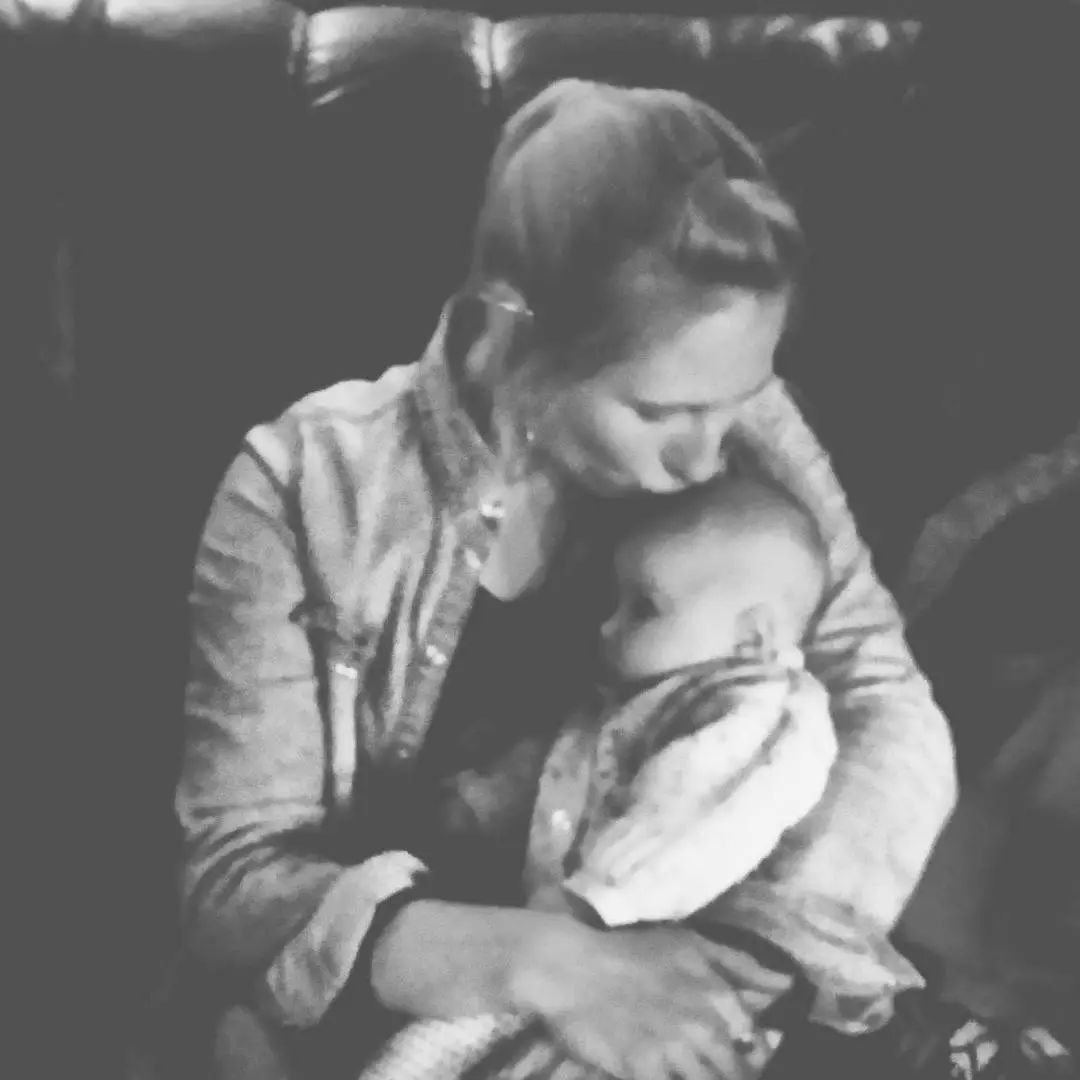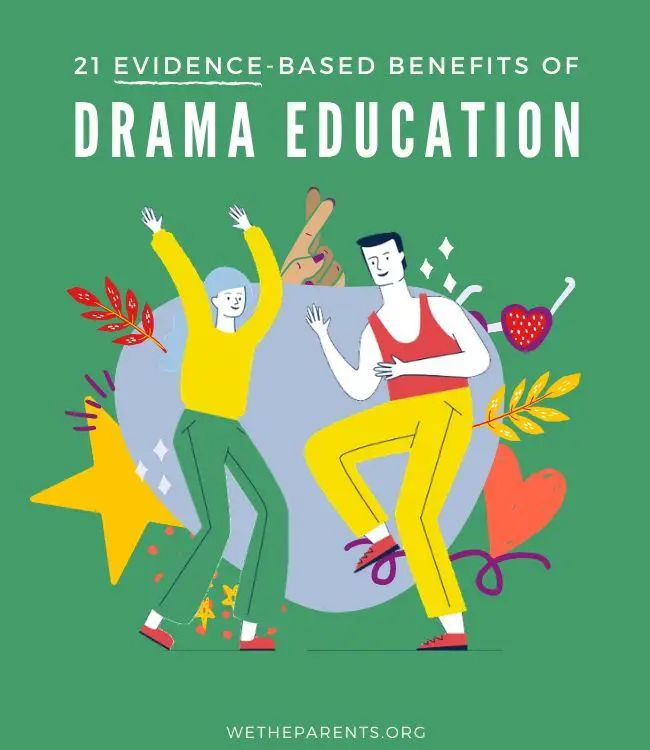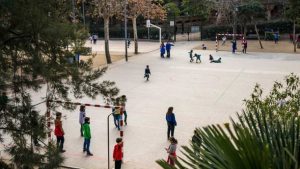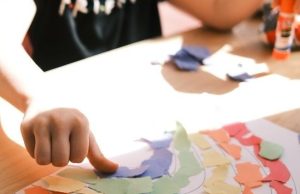Children can benefit from a diverse range of learning opportunities, but the active engagement and interpersonal experiences fostered by drama and theater education can have overreaching positive effects on their academic, social, and emotional lives that simply aren’t obtainable through rote book learning.
Emerging research demonstrates that time spent engaging in drama and theater can play a vital role in child development, and can help children to improve their self-confidence, feelings about academia, level of creativity and empathy, and desire to engage with peers.
Let’s dive in and take a look at 21 compelling studies that evidence these positive effects.
Drama education benefits [INFOGRAPHIC]

Drama benefits: Examining the evidence
It’s easy to see, then, why this branch of arts education deserves a great deal of emphasis. Often, arts education is the first subject to take a hit when budget cuts are made, but fighting for the presence of drama and theater education in our schools can make a profound difference to the childhood educational experience.
These 21 studies review in detail the myriad ways in which children can benefit from drama and theater education; read on to learn the fascinating details.
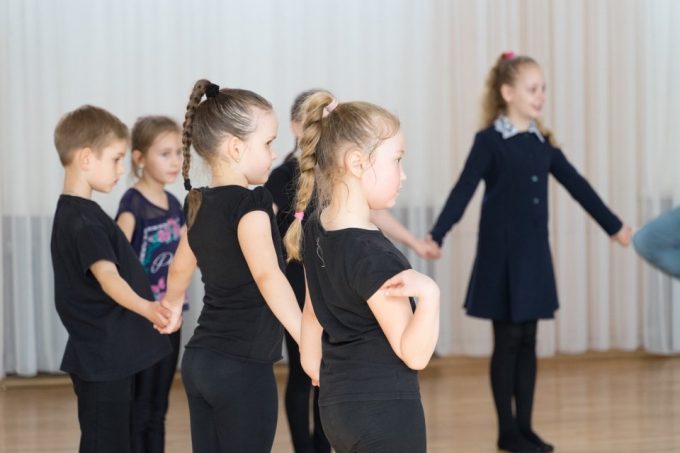
1) Develops oral language skills
The mastery of oral communication is a skill that will serve children well throughout their lives, but the articulate use of language is something that must be learned. One of the most famed studies on drama education, a 2000 literary meta-analysis by Ann Podlozny on the use of classroom drama to strengthen verbal skills in children, noted that studying theater can have a significant positive effect on kids’ oral language skills.
Her assessment of over 200 studies examined the data provided for evidence of skill development in seven areas: oral recall, vocabulary from taught stories, reading comprehension for new material, reading readiness for new material, language use assessment, blended known and unknown vocabulary, and writing skills. In six out of these seven areas, a strong correlation was demonstrated between drama and theater education and oral language development, most strongly in the area of written story recollection/the use of vocabulary from taught stories.
Key study/paper: Podlozny, A. (2000). Strengthening verbal skills through the use of classroom drama: A clear link.” Journal of Aesthetic Education, 34(3/4), 239-275. 61(5):1617-27.
Source: www.jstor.org/stable/3333644
2) Builds self-confidence and self-esteem
A healthy view of the self is something that’s necessary to thrive, and the seeds of good self-esteem and self-confidence are often planted in childhood through engaging peer-centric activities like drama and theater education. A 2004 evaluation of the National Theatre’s drama education work with primary schools demonstrated that interactive learning experiences in theater can positively impact children’s self-esteem.
The three-year study followed two groups of elementary-age children throughout their engagement in drama education programs offered by England’s National Theatre. These results, which focused on the younger of the two groups being assessed, determined through questioning and analysis of students and teachers that the program itself promoted self-esteem and self-confidence as a type of learning tool, encouraging children to engage with a positive view of themselves and their competency. It also increased their confidence and competence in theater and drama, with a democratic learning style allowing children to interpret their own voices as being important, authentic, and acknowledged.
Key study/paper: Turner, H., Mayall, B., Dickinson, R., Clark, A., Hood, S., Wiggins, M., & Samuels, J. (2004). “Children engaging with drama:An evaluation of the National Theatre’s drama work in primary schools 2002-2004.”
Source: https://discovery.ucl.ac.uk/id/eprint/10023480
3) Boosts reading achievement
Dramatic theater has a strong literary component, and a grasp on the written word and ability to master new vocabulary can translate into academic success across the board. The potential for theater education to improve reading achievement in students is one of the factors assessed in Podlozny’s 2000 study on verbal skills and drama education.
In 20 of the studies assessed by Podlozny, children generally acted out or read a play or story, while a control group engaged in their regular reading curriculum. Any increase in reading achievement was measured through a standardized test of reading comprehension. A demonstrable increase in the ability to recall details and vocabulary words from stories they had performed was seen in the children in the first group, with the overall efficacy of story comprehension was increased in instances where structured plots were used over role-playing. (Source)
Key study/paper: Podlozny, A. (2000). “Strengthening verbal skills through the use of classroom drama: A clear link.” Journal of Aesthetic Education, 34(3/4), 239-275.
Source: www.jstor.org/stable/3333644
4) Improves social skills
Successfully engaging with peers socially is an important component of a child’s mental and emotional well-being, and in many cases can play a crucial role in a child’s enjoyment of their school experience and overall academic success. A 2004 study by E. G. Schellenberg on the effect of music education on the IQ notes that children who study drama education may be more able to adapt socially, allowing them to be easily accepted by peers.
Interestingly, the focus of Schellenberg’s study was not initially the attendees of drama classes, but groups of delinquent teens. In the study, children attending drama classes were used as control groups in helping to establish the effects of learning role-playing on childhood social improvements.
After one year, the delinquent teens previously described as “anti-social” who had been given opportunities to act out roles rather than simply dictate them to others were demonstrating lower rates of delinquent behavior. Likewise, control groups of students attending drama classes demonstrated significant improvement in adaptive social behavior which wasn’t seen in those simply studying music at the same institution.
Key study/paper: Schellenberg, E. G. (2004). Music lessons enhance IQ. sychological science, 15(8), 511-514.
Source: https://read.oecd-ilibrary.org/education/art-for-art-s-sake_978926418078
5) Nurtures self-expression
The ability to express oneself emotionally and creatively is central to feelings of fulfillment and joy, and the intrinsic ties between arts education and self-expression often provide an environment where children feel safe being their truest selves. A 2000 study published by England’s National Foundation for Educational Research addressed both the efficacy and the effects of arts education in secondary schools, taking care to note that the so-called “obvious” claim that theater education encourages self-expression should be — and is — backed up by scientific study.
The study took place over a period of eight days, and included the observation of students engaged in classroom education, brief follow-up interviews with educators and students, interviews of middle-school aged children, interviews and meetings with faculty, department heads, art teachers, and those employed in creative arts. It was discovered through this process that both students and faculty use dramatic education as a tool for facilitating self-expression, and that some of the techniques learned in theater, such as miming, enhance children’s ability to express their thoughts and feelings. (Source)
Key study/paper: Harland, J., Kinder, K., Lord, P., Stott, A., Schagen, I., Haynes, J., … & Paola, R. (2000). “Arts education in secondary schools: Effects and effectiveness.” Slough: NFER, 566.
Source: www.nfer.ac.uk/publications/91012/91012.pd
6) Teaches emotional regulation
The ability to maintain a calm, level-headed emotional state in the face of frustration, fear, or sadness is something that all people must cultivate, as it informs the ability to fit in socially, succeed academically and in the workplace, and avoid impulsivity. A 2013 study published in APA journal Psychology of Aesthetics, Creativity and the Arts tackled the use of expressive suppression in acting classes, noting that it can have a marked effect on children’s ability to use emotional regulation.
Correlational and quasi-experimental studies surrounding the emotional development of children performing in a show tied to theater education revealed that as children learn to experience emotions through acting them out, they become more familiar with emotions and how to control them in a general sense. Likewise, when performing as technique actors, they must learn to disregard their own feelings and focus on their stage role, allowing them to improve their ability to self-regulate emotionally both on and off the stage. (Source)
Key study/paper: Goldstein, T. R., Tamir, M., & Winner, E. (2013). “Expressive suppression and acting classes.” Psychology of Aesthetics, Creativity, and the Arts, 7(2), 191.
Source: pdfs.semanticscholar.org
7) Increases writing skill outcomes
The ability to write well can translate into academic and career success, while the alternative can serve as a significant impediment. Drama and theater frequently revolve around the written word and, as Podlozny’s study on verbal skills and drama education is quick to point out, theatre education can offer many kids a boost to their basic writing skills.
In eight of the studies addressed in the analysis, written samples provided by both drama students and a control group were assessed for the use of story structure, the organization of plot, use of elaboration and description, and awareness of the reading audience. Before these samples were provided, drama students typically engaged in a classroom discussion about writing, and practiced miming, improvisation, role-playing through improvised scenes, and the development of story ideas. While the control group had a similar group discussion on writing, the rest of their language arts lesson continued on typically. When assessed, the drama students’ samples scored higher in meeting the established criteria than samples provided by the control group. (Source)
Key study/paper: Podlozny, A. (2000). “Strengthening verbal skills through the use of classroom drama: A clear link.” Journal of Aesthetic Education, 34(3/4), 239-275.
Source: www.jstor.org/stable/3333644
8) Enhances self-concept
Self-concept, an adjacent concept to self-esteem, is something that shapes a child’s view of who they are and how they are perceived by others. It describes the notions that a person has about themselves based on self-perception and feedback, perceived or otherwise, given by peers; statements like “I’m a helpful person” or “I am nice to other people” are intrinsic to a child’s self concept. A 2006 study examining the role of drama education in self development has linked experiences with studying theater to an enhancement of children’s self-concept.
In the study, over 100 children taken from five different classrooms were tested using a story task to determine their role-taking ability, a questionnaire designed to assess self-discrepancy, and a child-centric scale-based evaluation of their self-concept. These children then participated in ten weeks of drama education, after which the battery of tests was re-administered. The results showed major growth in children’s ability to take on roles, articulate self-concept, and use new vocabulary, skills shown to correlate with one another through continued analysis of these findings. (Source)
Key study/paper: Wright, P. R. (2006). “Drama education and development of self: Myth or reality?.” Social psychology of education, 9(1), 43-65.
Source: https://link.springer.com/article/10.1007/s11218-005-4791-y
9) Promotes sophisticated moral reasoning
Using moral reasoning to make decisions is a mark of mature judgement, and it’s something that children typically have to learn to understand. A 1998 paper on the exploration of morality through dramatic education addressed the role that studying theater can play in helping children improve the sophistication of their moral reasoning, demonstrating that this branch of arts education may help some kids gain character.
In John Basourakos’ paper, he cites the ability of engaging with moral situations through the dramatic arts as a driving force in establishing an understanding of decisions with a moral component. He notes that popular dramas at the time of the study focused on current issues of morality, making them exceptional teaching tools for helping children understand sensitive issues. The simulated nature of situations and interactions facilitates a comfortable decision of the issues while also engaging children’s sense of empathy and allowing them to understand points of view and uses of moral reasoning outside their own. (Source)
Key study/paper: Basourakos, J. (1998). “OExploring the moral sphere through dramatic art: The role of contemporary Canadian plays in moral pedagogy.” Canadian Journal of Education/Revue canadienne de l’education, 265-280.
Source: www.jstor.org/stable/1585939
10) Improves story comprehension (oral and written recall)
Comprehending details while reading is an essential part of learning, and for children who struggle with reading comprehension, an educational barrier can be created. Training in theater arts and acting out stories can facilitate an improvement the ability of children to give both oral and written recollections of the story being told, as a 1990 study published in the Journal of Research in Childhood Education indicates.
In response to previous studies indicating that the benefits of theater education diminished with age, Williamson and Silvern’s study reexamined data from a previous study on the role of theater training as it pertained to a set of older primary-school children who had been identified as having poor comprehension skills. After analysis, data demonstrated that theater education continued to benefit these children years beyond their classmates, making them more adept at reading comprehension. The number of children with average or above average comprehension abilities participating in the study may have unfairly skewed the results to indicate a lack of benefit as children progress toward middle and high school, Williamson and Silvern theorized. (Source)
Key study/paper: Williamson, P. A., & Silvern, S. B. (1990). “The effects of play training on the story comprehension of upper primary children.” Journal of Research in Childhood Education, 4(2), 130-134.
Source: https://doi.org/10.1080/02568549009594794
11) Trains critical listening skills
Whether kids are at home or at school, they’re depended upon by teachers and parents to listen well, which requires the use of critical listening skills. These come more naturally to some children than others, but for those who struggle, drama and theater education can reinforce the ability to focus intently and absorb detail while listening.
As the 2000 study published in NFER illuminated, there are a number of technical skills that can be improved through training in the dramatic arts. Exploring motivation, subtext, emotion, and reaction through acting can help children to be more present and engaged when communicating with others, allowing them to resonate with the message being presented and absorb concepts like word choices, intent, and bias. (Source)
Key study/paper: Harland, J., Kinder, K., Lord, P., Stott, A., Schagen, I., Haynes, J., … & Paola, R. (2000). “Arts education in secondary schools: Effects and effectiveness.” Llough: NFER, 566.
Source: www.nfer.ac.uk/publications/91012/91012.pdf
12) Fosters ‘whole-person’ growth
The personal growth and development that are cultivated through a child’s journey toward maturity are often prompted by developmental opportunities like the ones offered during drama education. As NFER’s study on the efficacy of art education on secondary school students discussed, learning theater is an excellent opportunity for children to experience ‘whole-person’ growth.
Evaluation of the data and interviews collected in the study determined that involvement in theater education helped children in several areas of personal strength and growth, including the facilitation of improved self-esteem, self-awareness, and self-confidence. Of the subjects evaluated, drama education scored highest in offering improvement in these areas, including the the development of a ‘whole/balanced person’ who encompasses these skill sets.
Key study/paper: Harland, J., Kinder, K., Lord, P., Stott, A., Schagen, I., Haynes, J., … & Paola, R. (2000). ”Arts education in secondary schools: Effects and effectiveness.” Slough: NFER, 566.
Source: https://www.nfer.ac.uk/publications/91012/91012.pdf
13) Encourages empathy
Taking on roles during play has been shown to naturally increase children’s empathy, so it follows easily that drama education can have a similar effect. Learning this essential skill is valuable socially and morally, and is a crucial part of character development for children. A 2012 study in the Journal of Cognition and Development assessed the connection between theater training and increases in empathy in children, showing a positive correlation between the two.
In the study, psychologists Goldstein and Winner assessed two groups of children — one comprised of elementary schoolers, the other, high school freshmen — as they experienced a ten month course of drama education. The study revealed that after their training, children in both groups tended to rate themselves as having improved empathy despite the fact that they hadn’t been taught to do so. They go on to theorize that stepping into the roles of other people can increase empathy and theory of mind in children by encouraging them to pay attention to thoughts and feelings other than their own. (Source)
Key study/paper: Goldstein, T. R., & Winner, E. (2012). ”Enhancing empathy and theory of mind.” Journal of cognition and development, 13(1), 19-37.
Source: http://blog.wheelock.edu/wp-content/uploads/2013/05/EnhancingEmpathy_JoCD.pdf
14) Develops problem-solving skills
Using logic and problem-solving skills are fundamental aspects of success throughout life, but they must be developed and nurtured. One 2015 study performed in Turkey suggests that the study of drama can play a positive role in children’s ability to solve problems of a creative nature and that required a higher level of thinking.
In the study, a total of eighteen second grade children studying primary mathematics were enrolled in a creative drama course, being observed before, throughout, and after the fact. After taking the course, the students who’d studied drama were more adept at using new skills and perspectives to tackle the creative problems provided than their other classmates. It was also observed that these children seemed to feel more comfortable solving problems as a group and contributing to the effort. (Source)
Key study/paper: İncebacak, B. B., Ersoy, E., & İncebacak, E. (2015) “ Effect Of Creative Drama Course On Creative Problem Solving Skills.” International Academic Conference on Teaching, Learning and E-learning(IAC-TLEl).
Source: www.researchgate.net/profile/Belgin_Bal_Incebacak/publication/284167227
15) Inspires intercultural sensitivity
Teaching intercultural sensitivity to children is a delicate process, as it requires the conveyance of both empathy and practical knowledge. One paper published in the Language Learning Journal suggests that drama education is an underutilized resource in teaching children about other cultures, as it allows them to engage in an empathetic way with the roles, customs, and experiences of others.
In the paper, author Sonia Cunico goes on to detail the ways in which drama education can convey important messages and details about other cultures to children who may not otherwise experience such direct engagement with the material. Nuanced situations involving conflict and emotion are often explored through drama, subjects which aren’t tackled in the traditional world history or foreign language classroom. Exploring other cultures through the dimension of interpersonal communication may encourage sensitivity toward intercultural differences and awareness of how others express their feelings and identity. (Source)
Key study/paper: Cunico, S. (2005). “Teaching language and intercultural competence through drama: Some suggestions for a neglected resource.” Language Learning Journal, 31(1), 21-29.
Source: /www.tandfonline.com/doi/abs/10.1080/09571730585200051
16) Enhances creative thinking
The ability to think creatively serves children well in the classroom and beyond, and it’s thought that engagement in creative activities helps to inspire and draw out kids’ natural creativity. Engaging in drama education may enhance the fluency and flexibility of people of all ages, as a 2009 study discovered.
In the study, 30 participants were evenly divided into experimental and control groups. They were assessed for fluency and flexibility of thought through the use of a circle drawing exercise and an open-ended quiz on alternate uses for objects. After the test, the experimental group attended a creative drama class consisting of three hours of weekly education. When the class had concluded, both groups were again tested. The experimental group demonstrated improvement in both the fluency and flexibility of their thinking. (Source)
Key study/paper: Karakelle, S. (2009).Enhancing fluent and flexible thinking through the creative drama process. Thinking Skills and Creativity, 4(2), 124-129.
Source: www.sciencedirect.com/science/article/abs/pii/S1871187109000236/
17) Builds conflict resolution skills
Resolving conflict is a social and practical skill that’s required in academia and beyond, and aptitude at conflict resolution can help to improve negotiation and leadership skills. Role playing is often suggested in helping children to improve these skills and, as an experimental 2007 study by UCLA Professor James Catterall revealed, theater education can also help kids tackle this challenge.
In the study, children attending a middle school in urban Los Angeles were invited to participate in 24 weeks of drama education, with the combined goal of teaching theater arts and improving the ability to resolve conflict between peers. The children both created and acted out scenes involving conflict, consequence, interpersonal dynamics, and rationales, devising scenarios in which they could work together with others to resolve conflict. At the end of the program, the children had demonstrably approved in self-efficacy and noted that they felt they had new tools to use when resolving conflicts. (Source)
Key study/paper: James S. Catterall (2007). “Enhancing peer conflict resolution skills through drama: an experimental study, Research in Drama Education:” he Journal of Applied Theatre and Performance, 12:2, 163-178, DOI: 10.1080/13569780701321013.
Source: www.ncbi.nlm.nih.gov/pubmed/23602481
18) Boosts self-efficacy and independence
As children move toward maturity, it’s important that they engage in activities that help to foster a sense of independence and self-efficacy, allowing them to see themselves as capable and feel a healthy sense of confidence and security.
Catterall’s 2007 experimental study on enhancing conflict resolution ability through theater education, which assessed a group of middle schoolers from urban L.A. as they progressed through a theater program centered around conflict resolution strategy, demonstrated that studying drama can improve kids’ self-efficacy and independence. After attending a six month theater program, children demonstrated significant improvement in statements of self-efficacy and independence, such as a willingness to be patient and persevere and feelings of control over self and destiny. (Source)
Key study/paper: James S. Catterall (2007). “Enhancing peer conflict resolution skills through drama: an experimental study” Research in Drama Education: The Journal of Applied Theatre and Performance, 12:2, 163-178, DOI: 10.1080/13569780701321013
Source: https://doi.org/10.1080/13569780701321013
19) Expands theory of mind
The ability to understand that other people’s thoughts, feelings, and moods may differ from your own and examine the reasoning behind them is called theory of mind; this is something that children must learn through experience, though this comes more naturally to some than others. It is considered distinct from empathy, thought it is conceptually adjacent.
In a 2009 study comparing drama students to their non-acting counterparts, those who had studied the theater demonstrated a higher grasp on theory of mind. Both groups of students were asked to assess photographs of people’s eyes and were asked to imagine the mental state the person pictured was feeling. The drama students were more adept at imagining the mental and emotional conditions of the people pictured thanks to their aptitude at theory of mind. (Source)
Key study/paper: Goldstein, Thalia & Wu, Katherine & Winner, Ellen. (2009). “Actors are Skilled in Theory of Mind But Not Empathy.” Imagination, Cognition and Personality. 29. 115-133. 10.2190/IC.29.2.c.
Source: https://www.researchgate.net/publication/247871626
20) Helps with resilience to stress
Coping with stress effectively is a skill that’s important to good mental health throughout childhood and adulthood. Some people are naturally more resilient than others, but for those who are sensitive to the intense stimulus stress can cause, learning emotional management and tension reduction strategies can help to alleviate some psychological discomfort.
The Dice Consortium’s 2016 release of findings and recommendations for educational theater and drama notes that in their study, which encompassed over 4,000 students from 12 different countries, one finding suggests that children who participate in theater education are better at coping with stress. The emotional regulation, empathy, and confidence that theater education fosters may offer children new tool kits for processing negative emotions. (Source)
Key study/paper: Stig A. Eriksson, Kari Mjaaland Heggstad, Katrine Heggstad & Ádám Cziboly (2014) “Rolling the DICE’. Introduction to the international research project Drama Improves Lisbon Key Competences in Education,”. Research in Drama Education: The Journal of Applied Theatre and Performance, 19:4, 403-408, DOI: 10.1080/13569783.2014.954814
Source: /www.dramanetwork.eu/file/Policy%20Paper%20long.pdf
21) Reduces problem behaviour
Testing boundaries and childhood mischief are a normal part of establishing independence, but chronically delinquent behavior requires identification and constructive redirection. A 1973 study published in Developmental Psychology suggests that taking on roles through theater education can help to reduce the rates of problem behavior in kids who continually act out.
In Chandler’s study, a group of 45 boys between 11 and 13 who had been identified as having problem behavior were split into three groups. The first engaged in a theater arts program including learning drama, playing roles, and creating films. The second group had a condition change which was a placebo, and the third were not “treated” at all. After the study, only those who had participated in the drama program demonstrated an increased understanding of taking on roles. An 18-month follow up demonstrated that the youth who’d participated in theater arts showed a significant reduction in antisocial behaviors. (Source)
Key study/paper: Chandler, M. J. (1973). “Egocentrism and antisocial behavior: The assessment and training of social perspective-taking skills.” Developmental psychology, 9(3), 326.
Source: https://psycnet.apa.org/record/1974-05776-001

Protecting and promoting drama
In school
These studies unequivocally demonstrate that drama and theater education play a marked positive role in the mental, emotional, and social development of our young people. Tragically, arts education is often among the first “elective” departments to get slashed by budget cuts, reducing the ability of schools to provide ongoing drama education.
As noted in the Dice Consortium’s 2016 release of research and recommendations on the use of theater education in schools, there are a multitude of best policies schools can adopt in order to facilitate the study of drama. They include:
- A mandate throughout national curriculum allowing children access to drama and educational theater, as taught by professional and well-trained specialists
- Tertiary education for teachers, offering them a knowledge base in drama and educational theater as well as the research on why it helps children
- The establishment of a network of partner organizations focused on drama and theater, regardless of public or privatized status
The consortium also goes on to suggest that national authorities develop a mindful strategy pertaining to the onboarding of new theater education policies and classes, including the provision of support, both legal and financial. They also encourage the development of a long-term arts education strategy on a national level.
For parents, the best way to protect theater education is to get involved and make your voice heard. If you’re on the school board or PTA, don’t hesitate to present these findings, encouraging the ongoing endowment of theater and drama education programs for kids.
At home
Even if they’re not receiving direct theater education at school, there are still ways children can reap the benefits of studying drama. Local theaters and performing arts groups generally put on two or three shows per year at minimum, and they frequently host open casting calls for anyone who’d like to audition. Performing arts classes and camps can have a similar effect, encouraging kids to form new bonds while mastering a dynamic skillset which offers a variety of positive outcomes.
Acting out stories, improvisation, miming, and other acting techniques are also a fairly regular part of free play, and encouraging your child to engage can teach some of the same empathy, vocabulary, and comprehension skills as formal theater education. Gear like a dress-up chest that prompts creativity and simple toys and structures like an empty cardboard box can quickly rev up young imaginations with a touch of the dramatic.
Wrapping up
Theater education can have life-changing scholastic and emotional benefits for our kids. In the ongoing struggle to keep arts education, it’s essential that parents and educators advocate to meet the need for ongoing dramatic arts in our schools. From the glitz and glamour of the big stage to their performance in the corner of the living room, kids are counting on us to be their fanfare, and to make this art form a part of their formal learning to their tremendous benefit.

